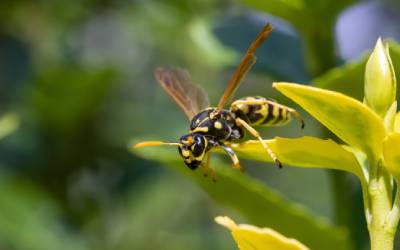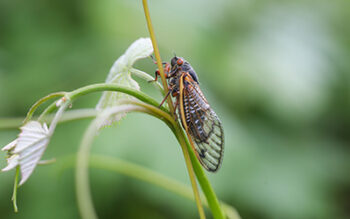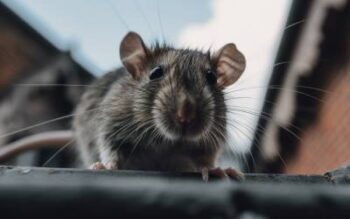
Stinging insects can be more than a nuisance. They can also endanger your well-being and cause harm. Some, such as yellow jackets, wasps, and hornets, can sting multiple times and cause allergic reactions or infections. Others, such as bees, can swarm and attack if they feel threatened or disturbed.
To have a peaceful and enjoyable time in your yard, take steps to deter these troublesome insects. Here are some suggestions on how to stop stinging insects from building nests and forming swarms in your yard.
Identify the Stinging Insects in Your Area
The first step to prevent stinging insects is to identify the types of bugs in your area. Different types of stinging insects have different behaviors, habitats, and preferences. Here in Arkansas, you may be dealing with one of these common stinging pests:
- Bumblebee: A fuzzy bee with yellow and black bands that nests underground and is beneficial for pollination. It can sting multiple times but is usually not aggressive unless provoked.
- Carpenter bee: A large bee with a shiny black abdomen that nests in softwood and can damage wooden structures. It rarely stings but can be territorial and aggressive.
- Honeybee: A bee with a furry thorax and a smooth abdomen with dark and orange-yellowish bands that nests in hives with visible combs. It is essential for pollination and honey production. It can sting only once and then die.
- Paper wasp: A slender wasp with long legs and a narrow waist that nests in paper-like structures hanging from trees or buildings. It can sting multiple times and is usually not aggressive unless you threaten its nest. Implementing effective wasp prevention strategies can help create a safer environment for outdoor gatherings.
- Yellowjacket: A wasp with bright yellow and black bands and nests in the ground or cavities. It can sting multiple times and is aggressive and attracted to sugary foods and garbage. Taking proper measures for yellowjacket prevention is crucial during outdoor activities.
Stinging Insect Prevention Tips
Don’t wait until bees and wasps are already invading your space to take action. Taking a few preventative measures early in the season can help you avoid an infestation or a painful sting. Here are a few ways you can prevent stinging insects from making their home on your property:
- Seal gaps or cracks in your walls, roof, or foundation.
- Trim any overgrown vegetation or branches that touch your house.
- Keep your downspouts and gutters clean and free of debris.
- Cover any openings or vents with mesh or screens.
- Remove any old or unused items that could provide shelter or nesting material.
- Store your food and drinks in sealed containers or coolers during a picnic or barbecue.
- Clean up crumbs and spills immediately after eating.
- Keep your trash cans tightly closed and empty them regularly.
- Avoid planting flowers or fruits that attract bees or other pollinators near your house.
- Provide a birdbath or fountain for birds and other wildlife instead of leaving water bowls for pets.
Call a Professional Exterminator If You Have a Stinging Insect Problem
You may do everything possible but still encounter a stinging insect problem in your yard. If you spot any indications of stinging insect activity, such as nests, swarms, or stings, you must refrain from handling it yourself. Stinging insects can be aggressive if provoked or disturbed.
Stinging Insect Prevention in Arkansas
The smartest thing to do is contact a professional exterminator with the skills and tools to remove stinging insects from your yard safely and effectively. Delta Pest Control is a reputable and dependable pest control company that can assist you with any stinging insect issue. It offers free inspections, estimates, and customized treatment plans to suit your needs and budget.
Schedule an appointment with Delta Pest Control today for a free quote. Its professional exterminators will make your yard a stinging insect-free zone and let you and your family have a peaceful and enjoyable time.





